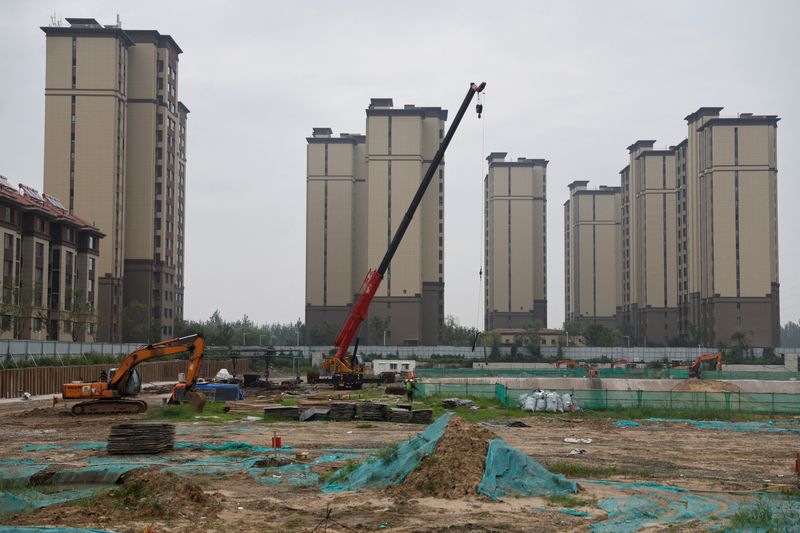HONG KONG (Reuters) - China's property market continued to consolidate in 2023 with state-affiliated firms dominating the home sales and land acquisition market, private surveys showed, as more private firms got embroiled in the sector's deepening debt crisis.
The top six home sellers last year were all state-owned or state-backed developers, with Poly Developments, China Vanke and China Overseas Land & Investment topping the league table, according to real estate research firm China Index Academy.
China's largest private developer Country Garden, which defaulted on its $11 billion dollar bonds in October, slipped to No.7 from No.1 in 2022, as its sales dropped 53% to 220 billion yuan ($30.9 billion).
Longfor Group, a major private developer that has not defaulted on its borrowings and deemed to be financially healthy by investors, retained its No.9 position, though sales also decreased 15%.
The China Index Academy said total sales of China's top 100 developers were down 17.3% to 6.3 trillion yuan ($883.70 billion) in 2023 from a year earlier, as property companies focused on cost controls and stable development rather than aggressive expansion.
Since mid-2021, China's property sector has grappled with a liquidity crisis, with many developers defaulting on, or delaying, debt payments as they struggle to sell apartments and raise funds. The slowdown in a sector which makes up about a quarter of the economy has been a major blow to consumer and investor confidence.
The authorities have announced a flurry of measures to try to revive the housing market but they have proven only modestly beneficial, raising pressure on Beijing for more stimulus to shore up demand and inject liquidity into the market.
New home prices fell for the fifth straight month in November, according to official data, while January-November property investment fell 9.4% year-on-year, after a 9.3% drop in January-October.
In terms of land acquisition, the China Index Academy said total value by the top 100 climbed 1.7% last year to 1.3 trillion yuan, with 89% coming from state-affiliated developers, helped by their stronger financing and sales capabilities.
"Because state-owned companies have more funding advantage, their share of the land market is expected to keep rising, and it will create more pressure for small- to mid-sized developers to acquire land (especially) in the core cities," China Index Academy said in a statement.

Rating agency Fitch said last month that property sales were expected to decline 5% to showing no growth in 2024, compared with its estimate of a 10% to 15% fall for 2023. The operating environment would, however, remain challenging for developers, it added.
($1 = 7.1296 Chinese yuan